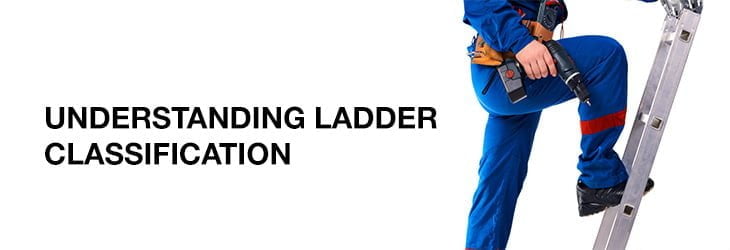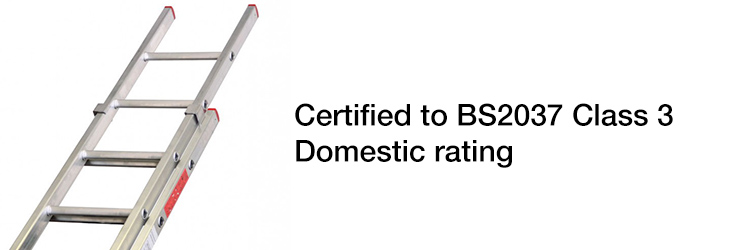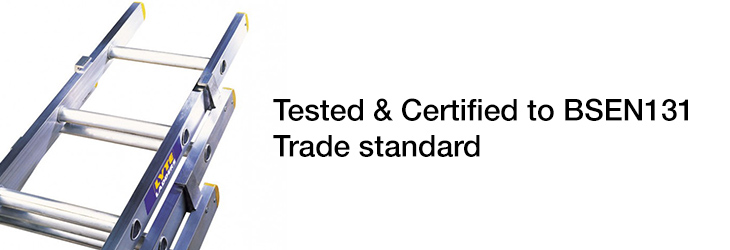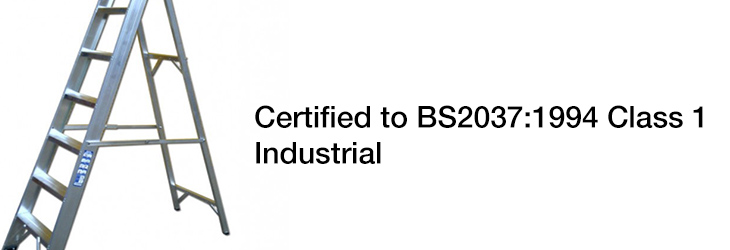Understanding ladder classifications
31/05/2016

When choosing a ladder it’s important to pick the right one for the job. While it’s relatively easy to diagnose whether you need a step ladder, extension ladder, or roof ladder, choosing a ladder of the appropriate class and strength can be a little more difficult. If you’re still a little overwhelmed by all the classifications and what they mean, you won’t have to be for much longer. In today’s blog, we’re sharing everything you need to know about ladder classifications – helping make sure you always select the right product.
All portable ladders and steps that are manufactured in the UK must be tested to the British Standards. These essentially give the products a stamp of approval and help to identify how they should be used. If you use the wrong type of ladder for a job, for example – a Class 3 domestic rated ladder for trade work, it can invalidate any insurance claims made.
Best for DIY work
BS2037: Class 3 rating
Top product: Lyte DIY Double Extension Ladders
Any ladder or access equipment tested to BS2037 is best used for DIY and domestic use. Products in this category have a duty rating of 95 kg and a maximum permissible load of 125 kg.

Products with this rating shouldn’t be used for trade or industrial purposes. View our range of extension ladders for DIY and domestic use.
Best for trade work
BSEN131: Class 2 rating
Top product: Lyte Trade Triple Extension Ladders
Any ladder or access equipment tested to BSEN131 has been designed for use in a trade environment, specifically for light trade work. Products in this category have a duty rating of 125kg and a maximum permissible load of 150 kg.

This standard is European wide while the other two standards (Class 1 and Class 3) are just UK wide. This means that some ladders tested to the EN131 standard may have just scraped through the tests or exceeded the tests. Because of this, it’s important to check all product descriptions before ordering. This should help you to assess whether a product is suitable for your line of work. View our range of quality aluminium extension ladders for trade use.
Best for industrial work
BS203: Class 1 rating
Top product: Chase Heavy Duty Industrial Swingback Step
Ladders and access equipment tested to BS203 has been designed for use in an industrial environment. Products in this category have a duty rating of 130kg and a maximum permissible load of 175 kg. This standard applies to aluminium products; timber ladders and steps tested to Class 1 standard are marked with BS1129.

Products in this category are usually very strong and suited to heavy, regular use. Most, if not all, building sites require equipment to be tested to BS203 or BSEN131. View our range of industrial extension ladders here.
Ladders that don’t have a classification
If you’ve browsed our collection of ladders and access equipment, you’ll find that some of them do not have a classification – such as our roof ladders and warehouse steps. This is because they aren’t tested to the British Standards as there isn’t a kitemark that applies to them. However, all of our products in these categories are manufactured from trade or industrial strength aluminium.